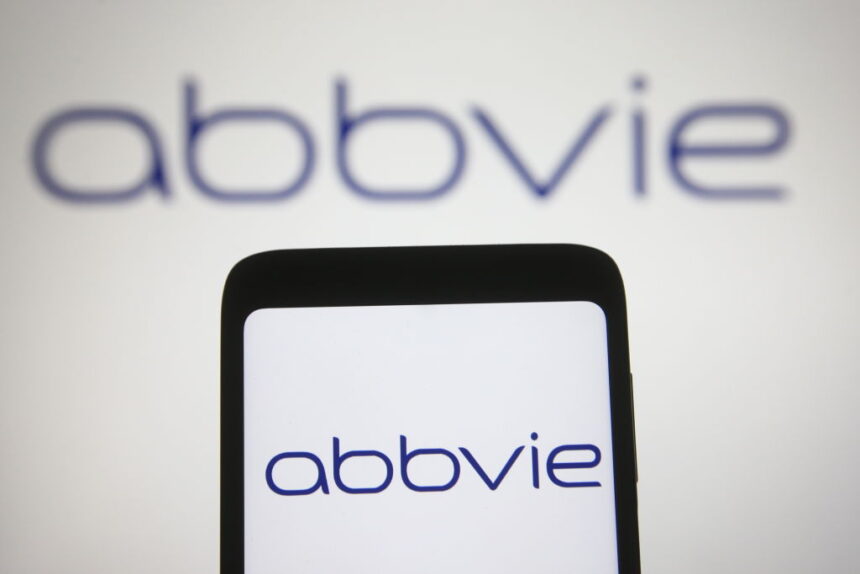AbbVie announced Thursday morning that it plans to buy ImmunoGen, a clinical-stage biotech that manufactures antibody-drug conjugates (ADC), for $10.1 billion.
For pharma giant, the centerpiece of the transaction is Elahere, a first-in-class ADC approved for treating platinum-resistant ovarian cancer.
Last year, the Food and Drug Administration granted Elahere accelerated approval to treat patients with FRα positive, platinum-resistant epithelial ovarian, fallopian tube or primary peritoneal cancer and who have also received one to three prior systemic treatment regimens.
ImmunoGen stated that Elahere’s positive results from a Phase 3 confirmatory trial are being used to support a supplemental Biologic License Application (sBLA) submission for full FDA approval as well as a Marketing Authorization Application in the E.U.
Elahere leads key ovarian cancer assets
AbbVie is slated to pick up other meaningful assets in the deal, including IMGN-151, a Phase 1 asset that is a next-generation anti-FRα ADC for ovarian cancer as well as Phase 2 asset Pivekimab sunirine, an anti-CD123 ADC targeting blastic plasmacytoid dendritic cell neoplasm (BPDCN), a rare blood cancer. The latter candidate was granted FDA breakthrough therapy designation for the treatment of relapsed/refractory BPDCN.
The boards of directors of both companies have approved the transaction, though the transaction is still subject to customary closing conditions and regulatory approvals as well as approval from ImmunoGen shareholders.
The deal, which is expected to close in the middle of 2024, is also estimated to be accretive to AbbVie’s diluted earnings per share beginning in 2027.
“The acquisition of ImmunoGen demonstrates our commitment to deliver on our long-term growth strategy and enables AbbVie to further diversify our oncology pipeline across solid tumors and hematologic malignancies,” AbbVie CEO Richard A. Gonzalez said in a statement. “Together, AbbVie and ImmunoGen have the potential to transform the standard of care for people living with cancer.”
ImmunoGen CEO Mark Enyedy added that AbbVie represents the ideal partner to scale operations and realize the full potential of Elahere in the ovarian cancer space. The deal also comes roughly one year after ImmunoGen’s SVP/chief commercial officer, Kristen Harrington-Smith, stepped down from her post.
AbbVie remains active
AbbVie continues to seek opportunities in immunology, especially after a rough quarter in that space.
The company reported a 6% decrease in worldwide net revenue during Q3 2023, with global net revenue from its immunology products falling 11.3%, to $6.7 billion.
Picking up ImmunoGen is also another indication of AbbVie’s active streak in the marketplace.
Last month, the company struck a deal to acquire neurodegenerative disease specialist Mitokinin, paying shareholders $110 million at closing for the purchase. The deal could grow by another $545 million depending on hitting certain developmental and commercial milestones as well as potential tiered royalty payments.
This came weeks after AbbVie terminated its license and collaboration agreement with Shanghai-based clinical-stage biopharma I-Mab over its CD47 antibody compounds and products.
AbbVie made the decision to end the agreement, which was first signed in September 2020, due to “previous program discontinuation” as well as the pharma giant’s strategic decision.
Staying power for ADCs
Beyond AbbVie, other Big Pharma rivals are jumping into the increasingly lucrative and appealing ADC pool.
Just this year alone, Eli Lilly scooped up two European-based ADC makers: Mablink Bioscience and Emergence Therapeutics.
In April, BioNTech struck a partnership with DualityBio to delve into next-generation ADCs focused on cancer and autoimmune diseases.
Weeks later, Bristol Myers Squibb entered into a strategic licensing agreement with Munich-based Tubulius to develop differentiated ADCs.
In May, Eisai announced it would pay up to $2 billion in a deal with Bliss Biopharmaceutical to develop an antibody-drug conjugate, BB-1701.
More recently, GSK released data from a Phase 3 study that showed Blenrep, a BCMA-directed ADC, significantly extended the time to disease progression or death versus Genmab and Johnson & Johnson’s anti-CD37 medicine Darzalex as a second-line treatment for multiple myeloma.







